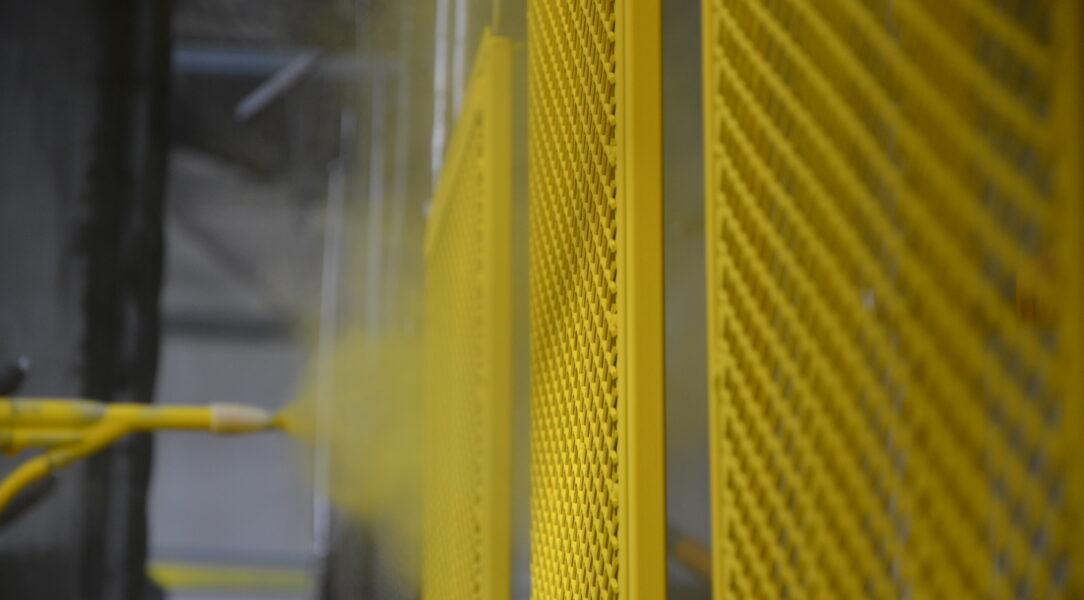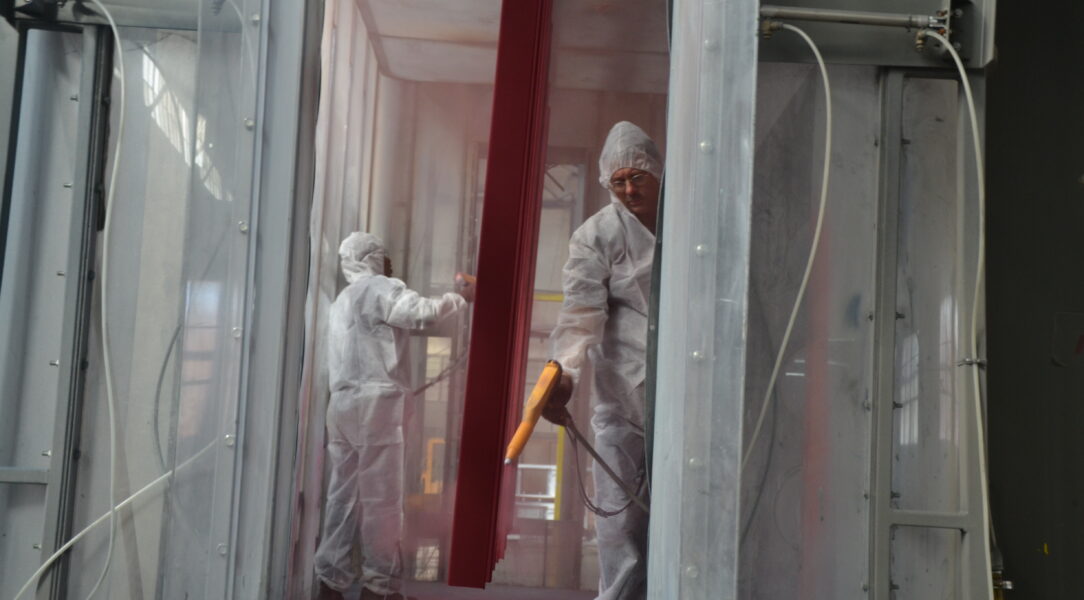What is powder coating?
Powder coating is a type of coating that is applied as a dry powder and then cured in an oven. The part to be coated is grounded and the powder receives a static charge as it is sprayed and is attracted to ground. This keeps the coating in place until it is oven cured. Most painted metal products are currently powder coated.
What can be powder coated in an industrial setting?
Most objects that are powder coated are made of metal. The powder cures at a minimum 350˚F, therefore the product to be coated must be able to handle that temperature. Here are just a few:
- Sheet metal and metal stamping
- Aluminum castings and extrusions
- Structural Steel
- Ornamental wrought iron
- Railings
- Industrial components
Wet Paint vs Powder Paint?
Many characteristics of powder coat make it a superior alternative to wet spray paint, including the following.
Dry Film Thickness – Powder coat is 4 to 10 times thicker than traditional liquid spray paint. Wet paints are applied in thicknesses of 0.5 to 1 mil (a mil is one one-thousandths of an inch, or 0.001-inch). Powder coat is applied in thicknesses of 2 to 6 mils for decorative finishes or 6 to 10 mils (and thicker) for functional finishes.
Hardness – Decorative powder coat is physically harder than wet paint. This property translates into significantly greater scratch and chip resistance, and thus generally better durability.
Adhesion – Powder coat adheres to the substrate better than spray paint. Partially a function of the sophisticated pretreatment process that all parts go through prior to coating, the excellent adhesion contributes to chip resistance as well as corrosion resistance.
Flexibility – Powder coat can withstand bending without cracking or flaking. Powder manufacturers publish flexibility test results that demonstrate between 100-800% elongation before failing!
Corrosion Resistance – Proper pretreatment and powder coat finish selection results in corrosion resistance which can far surpass traditional spray paint. Test results show salt spray tests of 1000 hours and longer without failure, and functional coatings are even more corrosion resistant. That’s not to say powder coat cannot be scratched, because if you work hard enough you can scratch anything. With traditional spray paint the rust at a scratch exposed to the elements will spread and lift the surrounding paint until the finish is ruined. With an appropriate powder finish, a deep scratch left in the elements long enough to ruin spray paint will still be a rusty scratch


